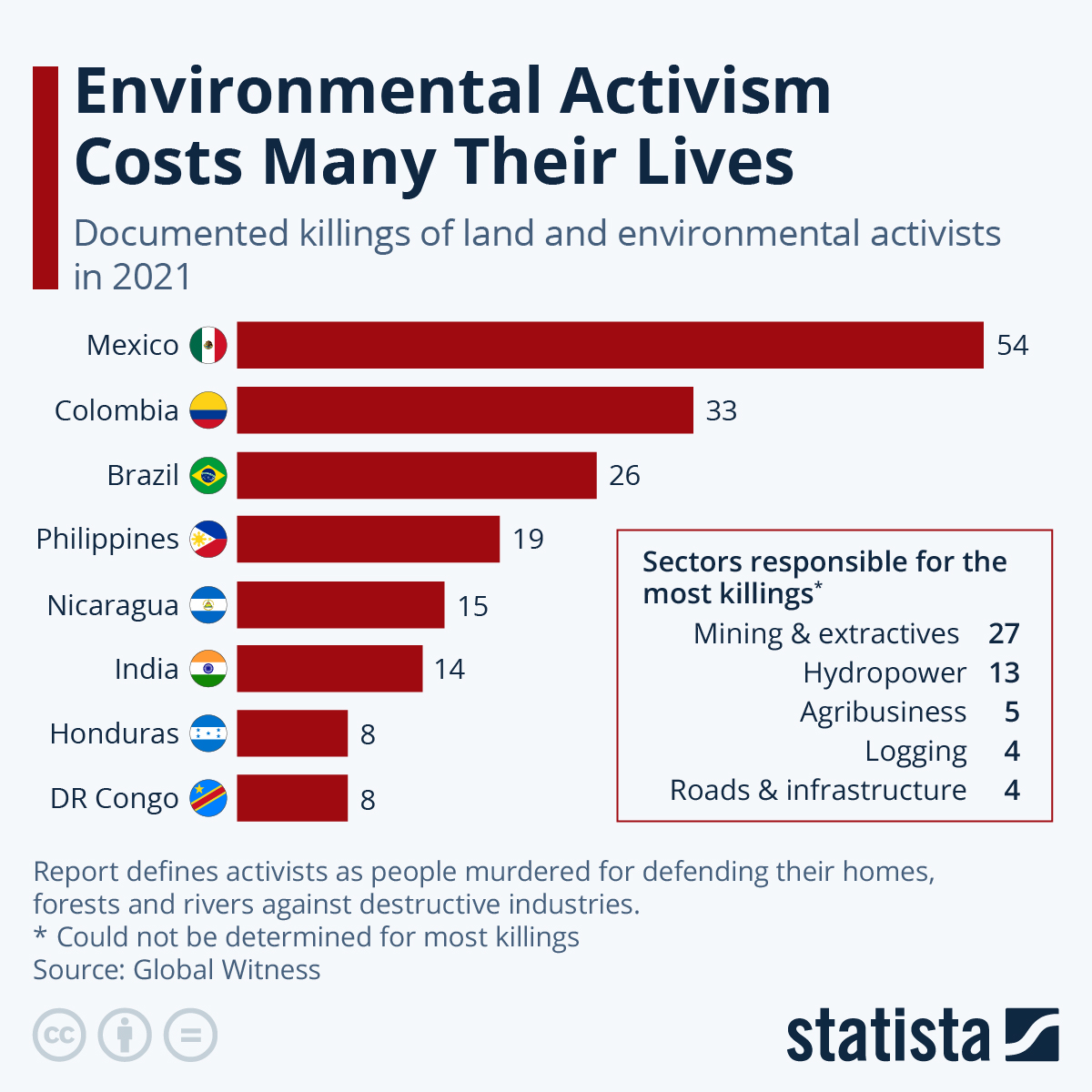
Global demand for products like timber, palm oil and minerals is rising which is leading to governments, companies and criminal gangs illegally seizing land. That has, in turn, led to clashes as people have sought to protect their homes and the environment. A new report by NGO Global Witness has now shed light on the number of people killed worldwide as a result of conflicts over resources.
The research documents 227 deaths in 2020, the highest number recorded in a single year. It adds that the data will never provide an accurate picture of the true scale of the problem due to a lack of free press in many of the countries affected as well as the fact that many governments fail to monitor abuses.
More than four land and environmental defenders were killed every week on average last year with almost 30% of all murders occurring in Colombia, followed by Mexico and the Philippines.
The deadliest sector in 2020 was logging, with 23 deaths connected to it. This was in line with the finding that forests had been most commonly protected by those who were killed over their stewardships of a specific ecosystem. Exploitation of ecosystems – also including mining, agribusiness and others – were together connected to a more than a quarter of all deaths.
The report recommends that the human right to a safe, healthy and sustainable environment should be formally recognised by the United Nations to lay the groundwork for better holding companies and governments accountable.
This piece was first published on Statista. Read the original here.






